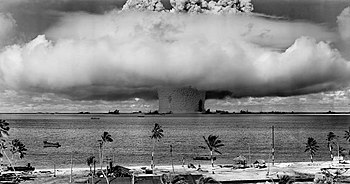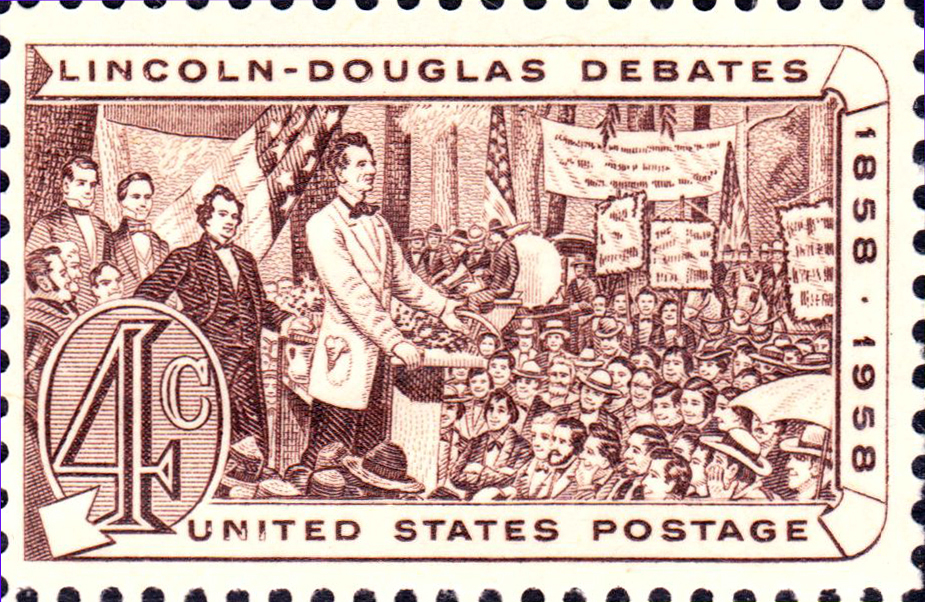
On July 16, 1945, the United States conducted its first test detonation, dubbed “Trinity,” of an atomic weapon. The following month the US became the first (and, to this day, the only) nation to use atomic or nuclear weapons in war. All in all, the US detonated more than 1,100 nukes in the 47 years between Trinity and Julin, its final nuclear test series, in 1992. The technology, it seems, has been thoroughly explored and then some.
Four years after the Julin tests, the United Nations General Assembly adopted the Comprehensive Nuclear Test Ban Treaty. US president Bill Clinton welcomed and signed the pact, but 20 years later the US Senate has yet to ratify it.
Why? Your guess is as good as mine.
The US has a half-century testing head start on any future would-be nuclear powers. Why wouldn’t foreign policy hawks in the Senate want to stop the clock with that advantage on the scoreboard and with a UN mandate for keeping it stopped? These are the same politicians who in the past have gleefully turned to alleged violations of such pacts as the excuse for sanctions and war.
On the dove side, such as it is, the charms of a test ban treaty are even more obvious. The world is awash in nuclear weapons — between the world’s eight or nine nuclear powers (Russia, the United Kingdom, France, China, India, Pakistan, North Korea and almost certainly Israel), more than 15,000 of them. Ending development of new weapons seems like a good first step toward getting rid of the existing ones.
As the Cold War wound down, those of us who grew up in the shadow of potential nuclear holocaust began to breathe easier. The hands on the “Doomsday Clock” maintained by The Bulletin of the Atomic Scientists were rolled back: Seventeen whole minutes to midnight! No more “duck and cover,” no more “missile gap” propaganda, no more Cuba crises. Peace seemed to be just over the horizon.
Today the Doomsday Clock shows three minutes to midnight. Russia and the US still have thousands of nuclear-tipped missiles aimed at each other and available for immediate launch. We’re still one unforeseen incident and one itchy trigger finger away from possible extinction or something close to it.
On September 23, the UN Security Council adopted a resolution renewing the call for all UN member states to sign and ratify the Comprehensive Nuclear Test Ban Treaty. I second the motion.
Thomas L. Knapp (Twitter: @thomaslknapp) is director and senior news analyst at the William Lloyd Garrison Center for Libertarian Advocacy Journalism (thegarrisoncenter.org). He lives and works in north central Florida.
PUBLICATION/CITATION HISTORY
- “Twenty Years, Three Minutes: Time to Ratify the Nuclear Test Ban Treaty,” by Thomas L. Knapp, OpEdNews, 09/24/16
- “Twenty Years, Three Minutes: Time to Ratify the Nuclear Test Ban Treaty,” by Thomas L. Knapp, Seoul, Republic of Korea Times, 09/26/16
- “Twenty years, three minutes: Time to ratify the nuclear test ban treaty,” by Thomas L. Knapp, Claremont, New Hampshire Eagle Times, 09/26/16
- “Twenty Years, Three Minutes: Time to Ratify the Nuclear Test Ban Treaty,” by Thomas L. Knapp, Ventura County, California Citizens Journal, 09/27/16
- “Twenty years, three minutes,” by Thomas L. Knapp, Bucks County, Pennsylvania Courier Times, 10/14/16
- “Twenty years, three minutes,” by Thomas L. Knapp, Doylestown, Pennsylvania Intelligencer, 10/14/16


